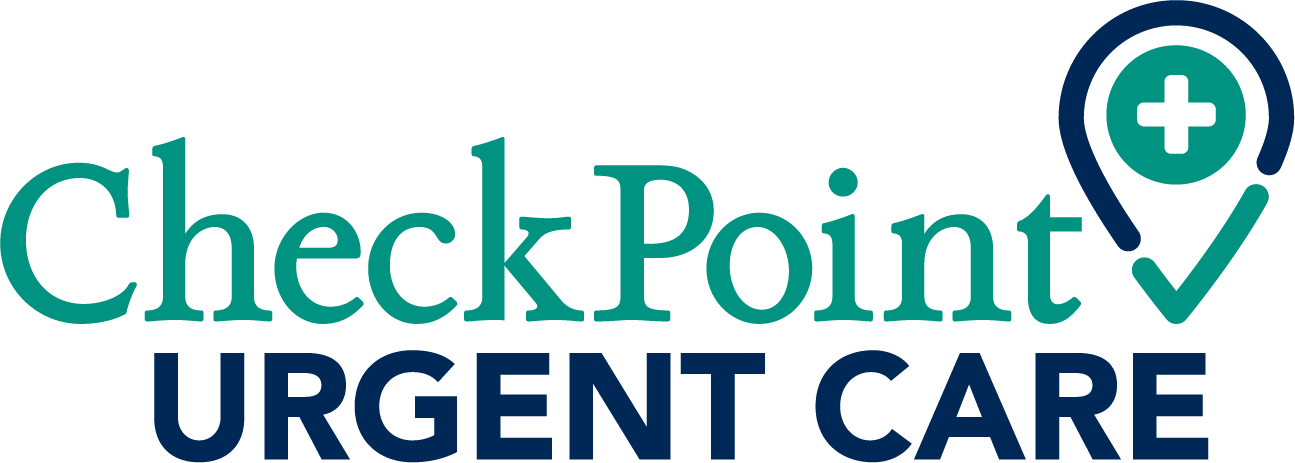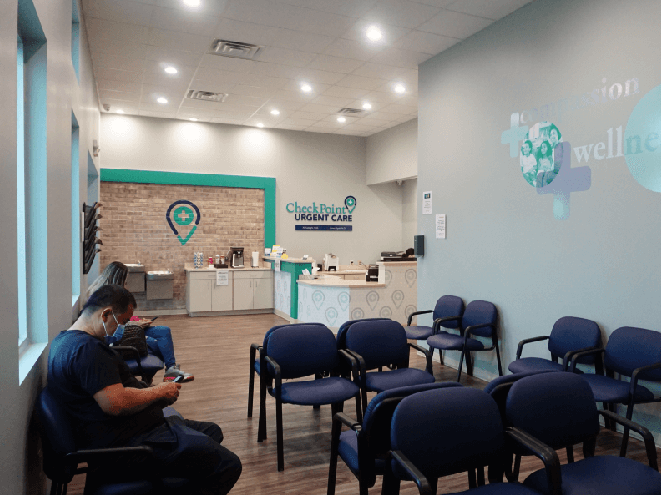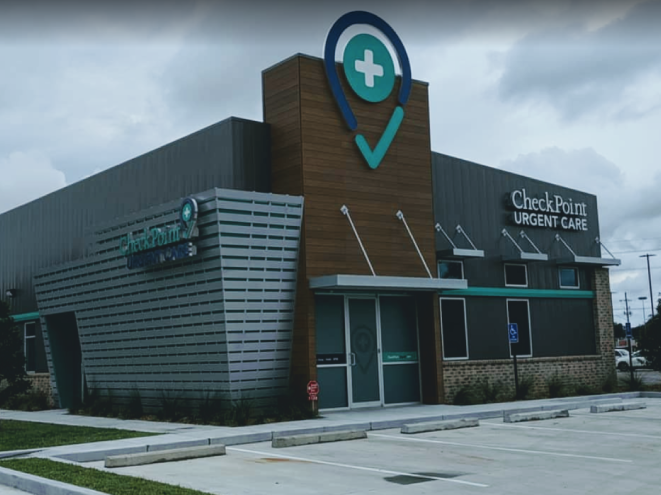Hypertension, or high blood pressure, affects an estimated 1.28 billion adults worldwide, and an estimated 46% of adults with hypertension are unaware that they have it. But what exactly is high blood pressure, what causes it and how can you treat and prevent it? Learn more with CheckPoint Urgent Care.
Hypertension
Hypertension is caused when the force of the blood pushing against the artery walls in your body is consistently too high. This means your heart has to work harder to pump blood. Untreated hypertension can increase your risk of heart attack, stroke and other serious health issues.
The American Heart Association generally divides blood pressure into four categories:
- Normal Blood Pressure: blood pressure below 120/80 mm Hg
- Elevated Blood Pressure: the top number, or systolic blood pressure, ranges from 120- 129 mm Hg, and the bottom number or diastolic blood pressure is below, not above 80 mm Hg
- Stage 1 Hypertension: the top number ranges from 130 to 139 mm Hg or the bottom number is between 80 and 89 mm Hg
- Stage 2 Hypertension: the top number is 140 mm Hg or higher and the bottom number is 90 mm Hg or higher
Blood pressure higher than 180/120 is considered a hypertensive emergency or crisis. Call 911 immediately.
Symptoms of Hypertension
Most people with hypertension have no symptoms, which is why most adults with hypertension don’t know they have it. People can live with high blood pressure for years without showing a single symptom. A few people with hypertension have reported:
- Headaches
- Shortness of breath
- Nosebleeds
These symptoms usually don’t occur until hypertension reaches dangerous or life-threatening levels.
Causes of Hypertension
Blood pressure is determined by two things, hence the two numbers. It’s determined by the amount of blood the heart pumps and how hard it is for the blood to move through the arteries. The more blood the heart pumps and the narrower the arteries, the higher the blood pressure.
There are two types of hypertension:
- Primary, or essential hypertension: for most adults, there is no identifiable cause of high blood pressure. It tends to develop gradually over several years. Plaque buildup in the arteries can increase the risk of high blood pressure
- Secondary hypertension: secondary hypertension is caused by an underlying condition. It tends to appear suddenly and causes higher readings than primary hypertension. Conditions that cause secondary hypertension include:
- Adrenal gland tumors
- Congenital heart defects
- Cough and cold medications, and some prescription medications
- Cocaine, amphetamines, and other illegal drugs
- Kidney disease
- Sleep apnea
- Thyroid problems
Treating Hypertension
Lifestyle changes can help lower blood pressure. This includes eating a healthy, low-sodium diet; losing weight; being physically active, and quitting smoking. For most people, the goal is to have a blood pressure of less than 140/90. If you’ve been diagnosed with high blood pressure, your doctor may prescribe certain medications. These medicines can include medications that relax the blood vessels and prevent kidney damage and diuretics that can eliminate extra water from the body and lower blood pressure.
Risk Factors of Hypertension
There are many risk factors for developing hypertension. They include:
- Age: until about age 64, hypertension is more common in men. Women are more likely to develop hypertension after age 65
- Race: high blood pressure is more prevalent in Black people. It also tends to develop at an earlier age than in white people
- Family history: you’re more likely to develop hypertension if you have a sibling or parent with it
- Obesity: excess weight causes changes in the blood vessels, kidneys, and other parts of the body
- Tobacco use (including vaping): smoking, chewing tobacco, or vaping immediately raises your blood pressure for a short while. Tobacco use can speed up the process of hardening the arteries
- Consuming too much salt: too much salt can cause the body to retain fluid and increase blood pressure
- Low potassium levels: potassium can help balance the amount of sodium in the body
- Alcohol use: high alcohol use has been linked to high blood pressure, especially in men
- Stress: high stress can cause an increase in high blood pressure temporarily.
- Certain chronic conditions: kidney disease, diabetes, and sleep apnea are a few examples
- Pregnancy: sometimes pregnancy can cause hypertension
Managing Hypertension with CheckPoint Urgent Care
If you think you may have hypertension or would like to get screened for it, the professionals at CheckPoint Urgent Care can perform the tests and prescribe the necessary medications. To find a location near you, check our website.








